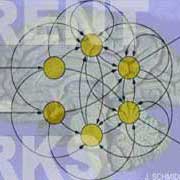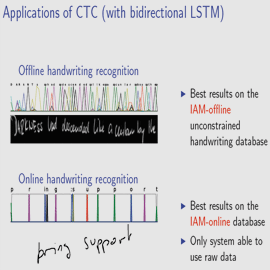| The jobs are filled! 2 Postdocs in Handwriting Recognition (for initially 2 years) at IDSIA in collaboration with Jürgen Schmidhuber, Luca Maria Gambardella, and LIFEWARE, Switzerland |

|
We are seeking 2 outstanding postdocs
with experience / interest in topics such as
handwriting recognition (both isolated digits and connected handwriting),
recurrent neural networks (RNN),
statistical / Bayesian approaches, HMM,
support vector machines
(especially recurrent ones), etc.
Goal: to improve the state of the art in handwriting
recognition and to implement prototypes, in collaboration with
the Swiss company LIFEWARE.
Salary commensurate with
experience: ~ SFR 72,000 / year (~ US$ 70,000 / year as of 10 July 2008).
Low taxes.
Start: now or soon.
. |

|
IDSIA is located just outside the beautiful city of Lugano in Ticino (pics), the scenic southern Swiss province. Milano, Italy's center of fashion and finance, is 1 hour away, Venice 3 hours.
Check out some previous IDSIA
postdocs who went on to become profs |
|
Submit your CV and a list of 3 references and their
email addresses to
cinzia@idsia.ch and
juergen@idsia.ch.
Do NOT send large files; instead send URLs.
In the subject header,
mention your name and the keyword kti2008.
For example, if your name is Jo Mo, use
subject: Jo Mo kti2008 |

|
Switzerland is a good place for scientists. It is the origin of special relativity (1905) and the World Wide Web (1990), is associated with 105 Nobel laureates, and boasts far more Nobel prizes per capita than any other nation. It also has the world's highest number of publications per capita, the highest number of patents per capita, the highest citation impact factor, the most cited single-author paper, etc, etc. Switzerland also got the highest ranking in the list of happiest countries. |

|
IDSIA was the smallest of the world's top ten AI labs listed in the 1997 "X-Lab Survey" by Business Week magazine, and ranked in fourth place in the category "Computer Science - Biologically Inspired". IDSIA's most important work was done after 1997 though. IDSIA has strong ties to the TU Munich lab of cognitive robotics at TUM Computer Science. |
|
IDSIA is small but visible, competitive, and influential. For example, its Ant Colony Optimization Algorithms broke numerous benchmark records and are now widely used in industry for routing, logistics etc. (today entire conferences specialize on Artificial Ants). IDSIA is also the origin of the first mathematical theory of optimal Universal Artificial Intelligence and self-referential Universal Problem Solvers (previous work on general AI was dominated by heuristics). IDSIA's artificial Recurrent Neural Networks learn to solve numerous previous unlearnable sequence processing tasks through gradient descent, Artificial Evolution and other methods. Research topics also include complexity and generalization issues, unsupervised learning and information theory, forecasting, learning robots. IDSIA's results were reviewed not only in science journals such as Nature, Science, Scientific American, but also in numerous popular press articles in TIME magazine, the New York Times, der SPIEGEL, and many others. |